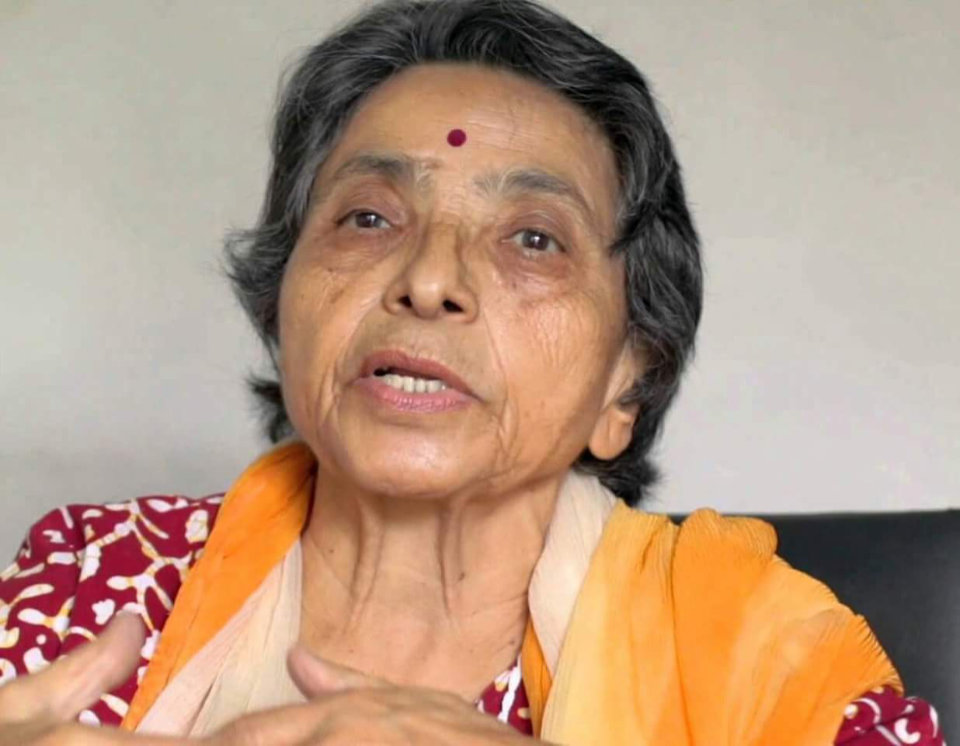Take five: “We must ensure that there are no cuts in donor and government expenditure on gender equality programmes”
Date:

Ms. Meena Acharya is a feminist economist and a senior scholar from Nepal who has researched and published extensively on development, macro economy, poverty and politics from a gender perspective for over 45 years now. In her interview with UN Women, she shared her expert analysis on the emerging socio-economic impacts of COVID-19 from a gender perspective.
1. As a feminist economist, what is your assessment of the COVID-19 pandemic in Nepal?
All sectors of the economy have been hit hard by COVID-19. The most severe impact is on tourism, and related sectors such as hospitality, handicrafts, transport, banking and finance services. The full impact on agriculture will also be substantial if the lockdown continues. The partial impact is already visible in the vegetable market, poultry farms, milk sales etc. Scarcity of animal feed has affected livestock rearing. Decreasing imports will negatively affect customs revenues and non-tax income from land and property transactions, which are major sources of income for the government. Decline in remittances may impact the deposits with the banking and financial sectors. At the household level, the sources of income from foreign employment will decline due to the recession in other countries. Due to the drastic decline in tourism the source of cash income in hill and mountain areas will also be affected. Nepal's national income, which was expected to grow by 6-7 per cent in the current fiscal year, will come down to 1.5-2.8 per cent, as per the current estimates.
2. How will this pandemic affect women, particularly those from marginalized groups?
Sixty-seven per cent of the women workers are in the informal sector, which is likely to be affected the most. Women are also a majority of workers in agricultural and the non-agricultural jobs in rural areas. With stoppage of manufacturing industries, construction work and transport movements, daily wage workers will also suffer. Service and sales occupations have also been severely impacted, where most non-agricultural sector women workers work. Most of these workers lack social security.
It is also important to understand the differential impact of COVID-19 on excluded groups, for instance, Dalits in Terai and Hills are surviving on the lower end as daily wage earners in agriculture. Women will have to manage larger households with reduced resources. In the process of managing food, as women and girls eat at the end, they may get a lesser amount of food. Their unpaid care burden will also increase. Moreover, alcoholism may increase and with that, violence against women and children.
3. From a feminist lens, what should be the core elements of the policy response?
Gender-responsive budgeting, gender equality and social inclusion directives must be reinforced with new directives. Provincial governments should also come up with food distribution plans focusing on women and the poor in remote areas. Along with larger agro-farms, women-managed smaller farms need help in access to credit, input, and technological services. With limited prospects of non-agricultural sector reviving, maximum efforts should be made to increase agricultural productivity.
4. What are your views on the Nepalese government response to COVID thus far?
The government has come up with a relief package for the non-agriculture sector establishments, which include measures such as extending the period of loan repayment and interest payments, tax relief etc. This is good because larger non-agricultural enterprises are facing work disruptions and may close down, and they must be assisted to re-start their business soon. This will keep the money flowing in the economy, increase exports and generate employment. However, the current relief package will touch only the larger and medium enterprises, which borrow from banks and registered financial institutions.
Most cottage and micro enterprises established by women, borrow from micro-finance institutions, which charge much higher interest rates. Additionally, they are faced with the stress of delay in instalment payment and a penalty for delayed payment. The government needs to develop a separate package for women's enterprises. Micro enterprises should be supported to regenerate employment for women locally.
While helping the larger and smaller enterprises, it is crucial to include their workers too. In the larger enterprises, the cost of relief packages for the workers may be shared between the government and the enterprises.
5. Given the far-reaching impact of COVID – what long-term measures should the Government adopt?
There is a need to revisit the power devolution and gaps. With the lack of clarity of authority of decision-making, pilferages and misuse of resources has been overwhelming at both the central and local levels. Under the relief programme, cash transfer may not be an adequate solution as stocks in the market will gradually deplete. There may not be food available to buy from the market. Given the uncertainties of the impact of COVID, establishing, and maintaining the food supply chain focusing on the most disadvantaged groups, will be very important.
We need to find innovative ways to expand effective social security allowance coverage to include those who have lost their jobs. Given Nepal’s vulnerability to natural disasters, the climate crisis package should be a regular feature of the national budgets. We must ensure that there are no cuts in donor and government expenditure on gender equality programmes.